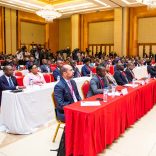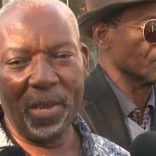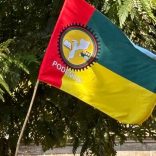Mozambique: FAMOD demands inclusion in “national dialogue”
Dhlakama’s death: One of Africa’s most prominent opposition leaders has died, says political scientist

File photo: Lusa
Political scientist Elisabete Azevedo-Harman said yesterday that Afonso Dhlakama will be remembered as one of the most dedicated opposition leaders in Africa, in both war and peace, in Mozambique’s ruling party environment.
According to the professor at the Catholic University of Mozambique, the president of the Mozambican National Resistance (Renamo), who died yesterday at the age of 65, will go down in history as a charismatic but not consensual figure in the country.
“In terms of SADC (Southern African Development Community) opposition party leaders, and in Africa, he is one of the most successful opposition leader. He was, even in relation to other countries, a leader who, in times of war, and afterwards in times of peace, subsisted in a ruling party environment,” she said in statements to Lusa.
“He was a beloved leader for about half the population of Mozambique, but we have the other half with grievances and negative memories of the war period, so he will always be a figure that agglomerates many Mozambicans sympathetic to the cause and to what was Renamo, but always with the antithesis of the supporters of Frelimo, a figure respected by some sectors of society, but always with this division that Mozambique has never been able to overcome,” she said.
As for the successor to Dhlakama’s legacy, the teacher considers that “it is always very difficult to follow a person like this: an extremely charismatic figure, very agglutinative of the population, especially in the centre and north of the country, and with a history like his”.
“He was a guerrilla and a guerrilla leader for most of his life, and since 1992, with the peace agreement, he comes to Maputo and leads the party, but always with this combination of party leader and combat leader, as a man of strategy and guerrilla warfare, so it will always be difficult to replace him, not only because of his personal characteristics but also because of the time he was at the head of the party,” she explained.
For the political scientist, in terms of legacy, one can compare Afonso Dhlakama “a little” to Jonas Savimbi, the historic leader of the opposition in Angola.
Dhlakama “does not die in combat, he signs a peace agreement in 1992 – so he moves from war to peace – and then he has these years, since 2012, when he comes back [to insurgency] at an older age, when it was expected that there would be a conflict in Mozambique again, it is he himself who goes back to the bush and leads a quasi-return to guerrilla operation again, and this is a situation of which, in Africa, there are not many cases,” she observed.
“We have cases of leaders who have never left the bush, but not leaders [of opposition movements] who sign peace accords, go to the city for 20 years and then, unhappy with the path that their peace process has taken, themselves in their lifetime go back into the bush, and restart the negotiation process, which was what Afonso Dhlakama was now doing,” she noted.
Now, she said, “because of what he was representing in the negotiations, we will see what happens”.
Chronology: Main dates in the life of Renamo leader Afonso Dhlakama













Leave a Reply
Be the First to Comment!
You must be logged in to post a comment.
You must be logged in to post a comment.